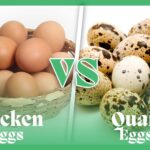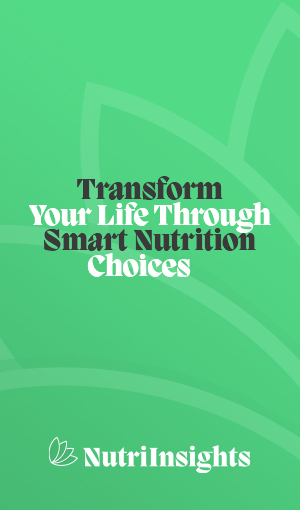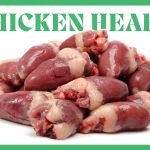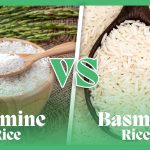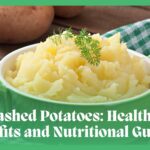As nutritious as their yellow counterparts, egg whites are known for their protein-packed perfection. This often-overlooked part of the egg provides benefits galore, whether you’re a gym enthusiast for muscle build-up or looking for a low-calorie, high-protein source. Egg whites are there in your service!
Join us to explore the rich tapestry of nutrients oozing out of the egg white as we crack open its shell.
What are egg whites?
Egg whites are the opaque, thick layer surrounding the egg yolk that also acts as a protective barrier for the growing chicken in a fertilized egg. They are composed of 10% protein and 90% water.
People often opt for egg whites due to the fat and cholesterol content of the yolk; however, recent studies have debunked the myths regarding the cholesterol of the egg yolk being bad for you. Healthcare professionals now deem whole eggs a great addition to our healthy diet.

Nutrient composition:
Energy:
Egg whites are a low-calorie nutrient source, rendering just 17.2 kilocalories, raw and cooked.
Protein:
Considered perfect for seeking a low-calorie and high-protein diet, just one egg white provides almost 4 grams of proteins.
Total fats:
Unlike the yolk, egg whites are free of all fats. However, keep in mind that the fats that mostly come from the yolk are unsaturated fatty acids.
Carbohydrates:
Egg whites are low in carbohydrates and dietary fiber, one egg white provides less than 1 gram of carbs.
Vitamins and minerals:
Some beneficial micronutrients found in egg whites are calcium, magnesium, phosphorus, potassium, B vitamins, and choline.
| Nutrients | Raw egg white | Cooked egg white |
|---|---|---|
| Proximate composition | ||
| Energy | 17.2 kcal | 17.2 kcal |
| Protein | 3.6 g | 3.52 g |
| Total fats | 0.056 g | 0 g |
| Carbohydrate | 0.241 g | 0.776 g |
| Dietary fiber | 0 g | 0 g |
| Sugars | 0.234 g | 0.234 g |
| Minerals | ||
| Calcium | 2.31 mg | 2.31 mg |
| Iron | 0.026 mg | 0.026 mg |
| Magnesium | 3.63 mg | 3.63 mg |
| Phosphorus | 4.95 mg | 4.95 mg |
| Potassium | 53.8 mg | 53.8 mg |
| Sodium | 54.8 mg | 92.7 mg |
| Zinc | 0.01 mg | 0.01 mg |
| Copper | 0.008 mg | 0.008 mg |
| Selenium | 6.6 μg | 5.87 μg |
| Vitamins | ||
| Thiamin | 0.001 mg | 0.001 mg |
| Riboflavin | 0.145 mg | 0.112 mg |
| Niacin | 0.035 mg | 0.031 mg |
| Pantothenic acid | 0.063 mg | – |
| Vitamin B6 | 0.002 mg | 0.002 mg |
| Folate | 1.32 μg | 0.99 μg |
| Vitamin B12 | 0.03 μg | 0.023 μg |
| Choline | 0.363 mg | 0.297 mg |
Role in human nutrition:
Widely known as a rich protein source with no fat and cholesterol, egg whites are a superhero for people aiming to incorporate more protein with less fat in their diet. Some of the health benefits of the whites are:
Heart health:
The main character of the breakfast, egg whites are great for heart health. Although the cholesterol and fat content of the egg yolk are not dangerous for the heart anymore, however, if you are already at risk of developing a heart condition or stroke, you may wish to avoid the yolk.
The American Heart Association recommends the intake of not more than 300mg of cholesterol a day when a whole egg contains 186 mg of cholesterol, which is more than half of the recommended daily amount. Egg whites are cholesterol and fat-free and suitable to add to a diet for improved heart health.
Furthermore, potassium in egg white is associated with bone health, and cell and organ function and maintains heart health by reducing blood pressure.
Healthy pregnancy:
Human embryos require proper nutrition to grow into a healthy baby. Protein should be a must-have nutrient in a pregnant woman’s diet for the sake of her fetus. Studies suggest that women who consume more protein have less chance of giving birth to premature and low birth weight babies than those who consume more protein and have more energy.
Egg whites are a complete source of protein, where one white provides 4 grams of protein, essential for a healthy pregnancy.
Satiety and body weight:
Incorporating egg white in breakfast as a protein source improves satiety and keeps you full for a long time. This reduced hunger prevents you from unnecessary snacking and, hence, does not lead to weight gain and obesity.
Adding more protein to a diet helps lose weight, as evident from a study that concluded that a high-protein diet leads to more weight loss than a moderate-protein diet.
Muscle mass:
There’s a difference between eating more protein and eating the right protein. Consuming more protein will not bulge your body and improve muscle mass, but putting the right amino acids in your body will make a difference.
Egg white protein is a complete protein containing all essential and branched amino acids. Essential amino acids are the ones the body cannot produce and has to take from the diet.
Branched-chain amino acids (BCAAs) such as leucine, valine, and isoleucine increase muscle growth and synthesis, reduce muscle damage and soreness, prevent muscle wasting and fatigue, and improve energy levels.
BCAAs alone can build muscle mass, but their functionality doubles with other essential amino acids. If BCAAs alone can build muscles by 22%, in combination with the essential amino acids, their capability increases by 50%.
Skin health:
The membrane inside the shell and outside the egg white has collagen, a protein essential for healthy skin. If you are consuming only the white of the egg, separate the membrane with it for your skin. This layer can also be used in facial masks to remove wrinkles and other signs of aging.
Healthy metabolism:
Riboflavin, a B-complex vitamin, is present in good amounts in egg white. It is essential for healthy metabolism and production of red blood cells. Riboflavin also acts as an antioxidant and neutralizes free radicals by donating one electron from its outer shell.
Fat metabolism:
Egg whites are a high-quality protein source that not only increases the body’s protein but also decreases total lipid levels. A study where rats were fed egg white showed lower levels of triglycerides and leptin, showing it reduces visceral fat. Furthermore, egg white protein also reduces adipose tissue weight and adipocyte area indicating that consuming egg white reduces body fat and visceral fat levels (2).
Side effects:
Besides the health benefits this protein-rich delicacy provides, it does pose some side effects. Some of them are discussed ahead:
Allergies:
Eggs are at the top of the allergy-causing foods in the United States. Most allergies caused by egg whites are from a protein called albumin. The symptoms of egg allergy include itchy and watery eyes, rashes, stomach pain, skin redness, constipation, diarrhea, nausea, vomiting, and asthma-like symptoms.
Food poisoning:
Raw egg white poses a side effect of food poisoning from salmonella bacteria. Mostly found around eggshells, salmonella causes diarrhea, fever, and stomach cramps 8 to 72 hours after getting in contact with it. The best way to minimize its risk is to cook your egg white thoroughly.
Reduces biotin absorption:
Biotin is a B-complex vitamin essential for food digestion, metabolism, and healthy skin, hair, and nails. Consuming egg white may deprive the body of this essential vitamin due to the presence of a protein called avidin. This avidin binds with the biotin and inhibits its absorption.
However, to cause biotin deficiency, you have to consume the egg raw, and cooked egg white does not have any effect on biotin.
Egg whites vs. whole eggs:
Egg whites are lower in calories, fat, and cholesterol as compared to whole eggs. They are beneficial for those who wish to lose weight and for people with high protein requirements but need to keep their calories in check, examples include athletes and bodybuilders.
Apart from that, they are lower in nutrients than whole eggs!
Egg whites are a great source of lean protein but are nutritionally weaker than whole eggs. By consuming the whites, you are cutting down the cholesterol and fat with other essential nutrients the whole eggs offer. Most studies have shown little to no effect of eggs on raising cholesterol levels and cardiovascular diseases (3)
Doctors recommend eating one whole egg and adding extra whites to it to add volume, but that also varies from person to person.
Eating whole eggs increases the protein and essential amino acids that keep you full for a long time, along with antioxidants like lutein and zeaxanthin that help prevent macular degeneration and cataracts.
So, if you are someone who is on a very reduced-calorie diet, has high cholesterol and heart diseases, or has a family history, egg whites may be the right option for you.
Overall, the opaque part of the eggs packs a punch of nutrients, the most prominent of which are proteins. From their role in building muscle mass to their benefits in fat metabolism, egg whites are an essential part of our breakfast plate.

References:
- https://doi.org/10.1159/000471485
- https://doi.org/10.3390/foods11152309
- https://doi.org/10.1080/07315724.2016.1152928


